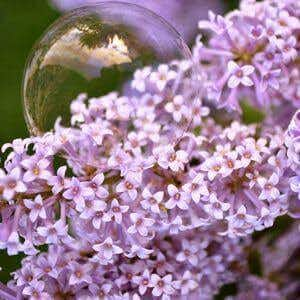
Many doctors look down their noses at natural medicine. They didn’t learn about such therapies in medical school and they perceive this “alternative” approach as unscientific.
Yet every day physicians write millions of prescriptions for drugs that were originally derived from plants. There is nothing unconventional about these medicines. Most are manufactured by mainstream pharmaceutical companies.
Medicines from Plants
A widely used heart medicine digoxin (Lanoxin) comes from foxglove (Digitalis). The anticoagulant warfarin (Coumadin) prevents heart attacks and strokes. It was originally developed from research on sweet clover. Cancer drugs like vinblastine from Madagascar periwinkle or paclitaxel (Taxol) from the Pacific yew save lives.
Metformin from French Lilac
One of the most widely prescribed diabetes drugs in the world is metformin (Glucophage). It was originally derived from Galega officinalis (French lilac). There is good evidence that metformin not only helps control blood sugar but reduces the risk of developing some common cancers and helps prevent their metastatic spread. Here is a link to learn more about the modern miracle of metformin. Despite its well established track record, few health professionals realize that the drug originated from a plant. There are dozens of other examples, from caffeine and quinine to senna and scopolamine.
Physicians are not the only ones confused about the artificial distinction between drugs and herbs. Many patients think that if something is natural, it must be safe. People who shun synthetic medicines often embrace herbs uncritically.
We heard from a physician concerned about this assumption:
“I was intrigued by a question and answer in your column. A reader asked if there was an herb to help with sleep, but refused to take sleeping pills. You suggested valerian root and commented that it was as effective as the prescription medication oxazepam.
“I am a family physician and frequently get similar questions from my patients. I am always amused that people don’t realize they are taking MEDICINES when they use herbal remedies. I am also tickled by patients’ attitudes when they ask me about herbal medications or tell me of their use because they all assume I will object.
“I always point out that doctors use ‘herbal’ medications in their practices every day (aspirin, digoxin and morphine, to name a few). However, I am alarmed by the widespread misconception that because they are natural, herbal medications are also universally safe. Botulism toxin, poisonous mushrooms and heroin are all natural, but clearly are not safe to use in most conditions.
“My small rural hospital admits patients for side effects from natural diet pills. Herbal medications are like any other substance used to alter body chemistry and physiology. They should be treated with the same respect and caution as conventional medications.
“Prescribers and consumers should know the dosage, effect, side effects and interactions of any substance they use for promoting health. The big difference between herbs and other medications is that it is more difficult to get such information about herbal treatments. I encourage anyone who plans to use botanical medications to find a reliable source for this information.”
We completely agree with this physician. Whether someone is taking prescription medicines, over-the-counter remedies or herbs from the health food store, it is crucial for the patient to be well informed about potential risks as well as benefits.
That is why we have an herb library here at The People’s Pharmacy. Please check it out if you are taking something from Mother Nature’s medicine chest! Whether it be aloe vera, arnica, bilberry or boswellia, you owe it to yourself to be well informed! If you are drinking green tea or taking ginseng, take a few minutes to learn more about these botanical medicines.

